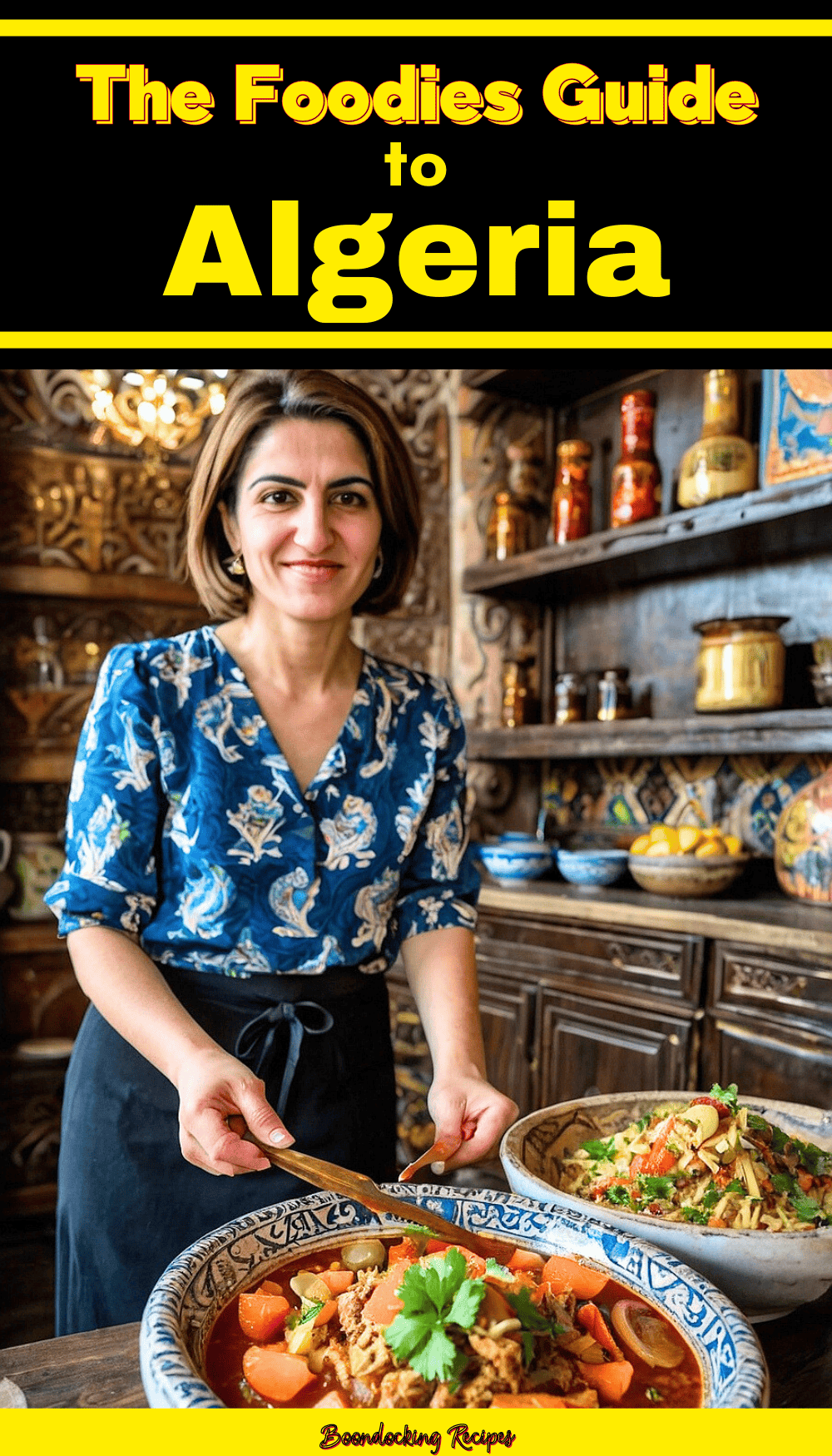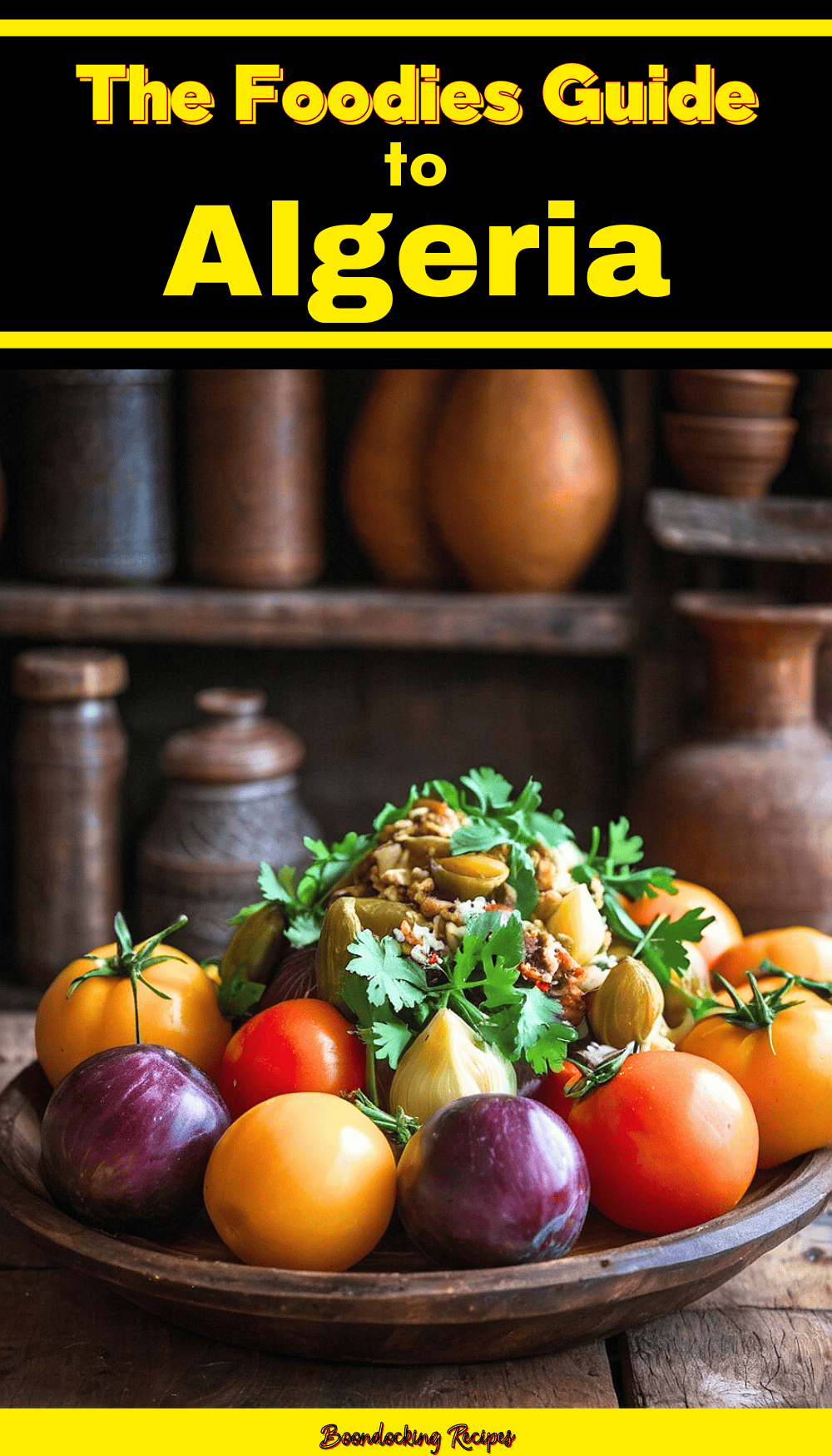Algerian Foodie Travel Guide
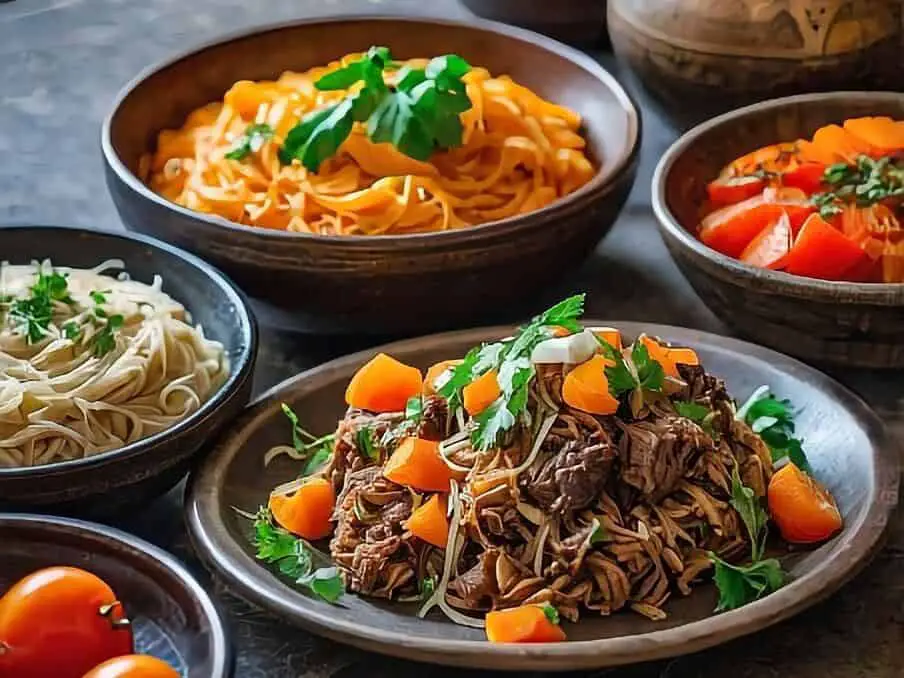
Traveling with our Algerian foodie travel guide will take you through a delicious journey through a kaleidoscope of flavors and aromas. As I explore this North African gem, I invite you to join me in discovering the richness of Algerian cuisine, which embodies centuries of culture and tradition. From the bustling markets to the intimate family gatherings, food is at the heart of Algerian life, and I can’t wait to share the unique dishes and recipes that you should savor on your next adventure.
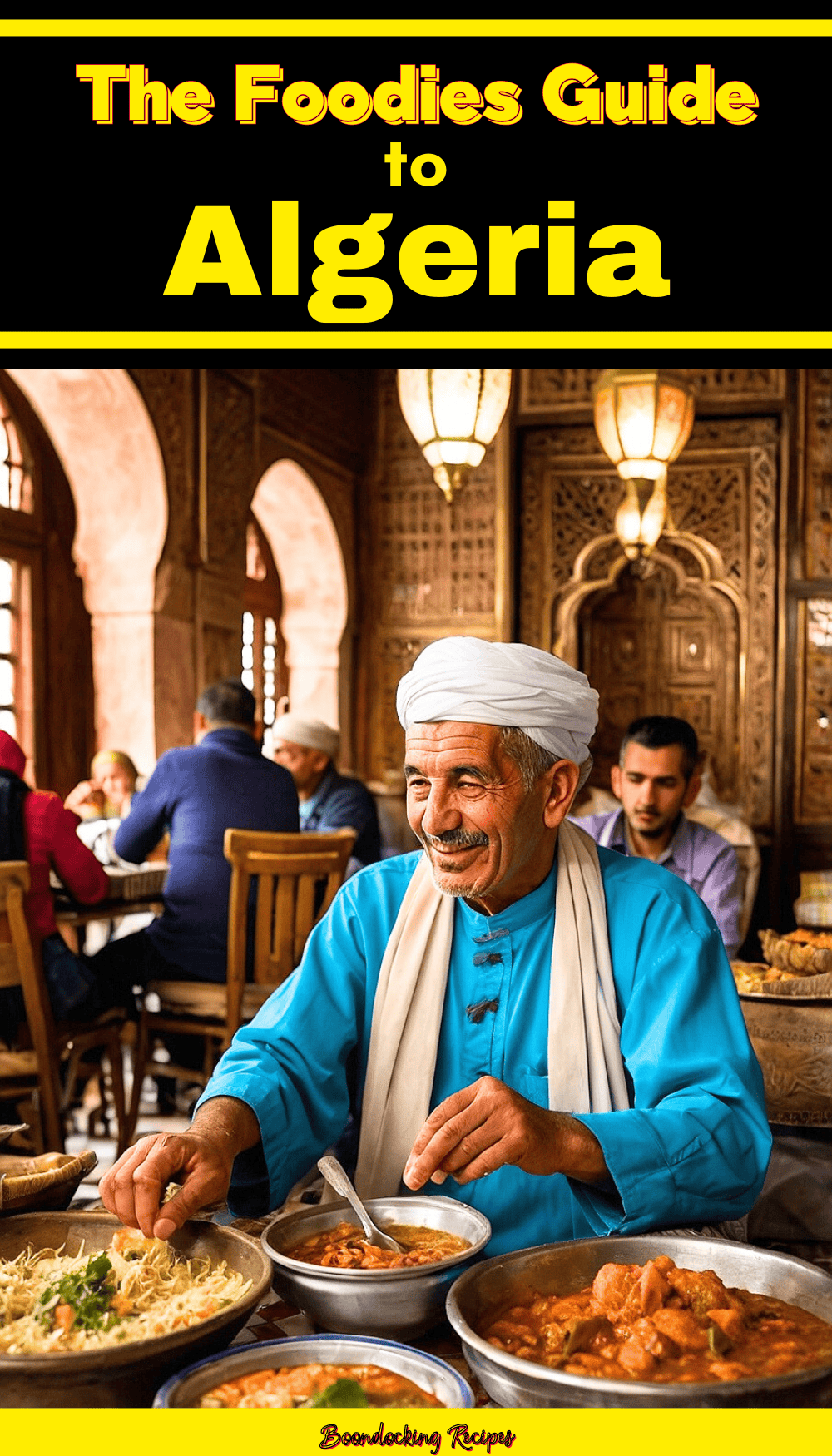
Discovering Algerian Cuisine
The Rich History Behind Algerian Food
Some may not realize that the history of Algerian cuisine is a fascinating tapestry woven from various cultures and civilizations. The influences range from Berber traditions to the flavors introduced by the Romans, Arabs, Turks, and even the French during their colonization. Each of these groups contributed unique ingredients and cooking techniques that have shaped what we now consider traditional Algerian dishes. The culinary practices have evolved over centuries, and what remains is a rich reflection of Algeria’s diverse history.
Moreover, the geographical diversity of Algeria—ranging from Mediterranean coastlines to vast desert landscapes—has also played a crucial role in influencing local Algerian foodie travel. Traditional recipes often mirror the ingredients available in these regions, showcasing a blend of flavors, spices, and cooking styles that tell a story of resilience and adaptability.
Unique Flavors of Algeria
Rich in spices and flavors, Algerian cuisine offers a culinary adventure that is hard to resist. You’ll find that herbs like coriander and parsley are staples, often combined with spices such as cumin, paprika, and cinnamon to create dishes that are both aromatic and flavorful. Signature dishes like couscous—arguably the heart of Algerian foodie travel are often served with slow-cooked meats and vegetables, bringing together textures and tastes that are delightful and satisfying.
Algerian meals are enhanced by the use of local ingredients like lamb, chicken, and a variety of fresh vegetables. My personal favorite is the spicy harissa, which adds a kick to stews and grilled meats, making each bite a burst of flavor. The emphasis on communal dining experiences also adds a special touch, as meals are often enjoyed together with family and friends. Last for any questions you may have always refer them to the Algerian Consulate at this website.
Regional Specialties to Try
There’s something incredibly exciting about exploring the regional specialties of Algeria, each one unveiling a different aspect of local culture. From the coastal town of Oran, where seafood dishes dominate, to the mountain ranges of Kabylie, known for their hearty stews and artisanal cheeses, each region offers a unique taste that reflects its geography and history. The practices of gathering ingredients naturally differ, leading to distinctive culinary methods that you won’t find anywhere else.
Additionally, if you’re using the Algerian foodie travel guide and traveling south to the Sahara, you should absolutely try dishes like Mechoui—slow-roasted lamb that is incredibly flavorful. On the other hand, the northern regions often feature chorba, a comforting soup packed with fresh herbs and spices, perfect for warming you up after an adventurous day of exploring. Each dish tells a story, and it’s through tasting these specialties that you truly begin to understand the vibrant culture of Algeria.
Specialties from Algeria are not only culinary highlights; they are also an imperative part of the social fabric. Sharing these dishes with locals provides a unique window into the country’s love for community, tradition, and hospitality. Don’t miss the chance to indulge in these flavors during your visit!
Types of Algerian Dishes
The Algerian culinary landscape is as diverse as its history and culture. From traditional recipes passed down through generations to modern interpretations that reflect a fusion of flavors, the Algerian foodie travel guide dishes are a delight for Algerian foodie travel. In this section, I’ll take you through some of the must-try types of dishes that showcase the richness of Algerian cuisine.
Traditional Dishes
Any visit to Algeria would be incomplete without indulging in its traditional dishes. One of the most famous is couscous, often served with a variety of meats and vegetables. This dish holds a special place in Algerian culture, as it is traditionally prepared during celebrations and family gatherings. Another classic is tagine, a slow-cooked stew that combines meat, spices, and vegetables, all simmered in a conical clay pot that enhances the flavors.
Additionally, you can’t miss out on chakchouka, a vibrant dish made with tomatoes, peppers, and eggs, usually eaten for breakfast or brunch. For something hearty, there’s mloukhiya, a dish made from jute leaves and served with meat, often accompanied by rice or bread. These traditional dishes are just the starting point for a culinary adventure in Algeria!
Street Food Delights
Clearly, street food for an Algerian travel foodie is an experience you won’t want to miss. Whether you’re exploring the bustling markets of Algiers or taking a leisurely stroll in Oran, you’ll find vendors serving up mouthwatering treats. One of the most popular street foods is the spicy harissa, a chili paste made from a variety of peppers that adds a kick to many dishes. You’ll also find borek, a flaky pastry filled with cheese, meat, or spinach, often drizzled with a tangy sauce.
Another typical street food item is merguez, a spicy sausage made from lamb or beef, grilled to perfection and often served in a sandwich or with couscous. These grab-and-go options not only satisfy hunger but also give you a taste of local flavors in a casual setting. You might even find yourself mingling with locals at outdoor cafes while enjoying your meal.
Traditional street food isn’t just about quick bites; it’s also a way to connect with the heart of Algerian culture. Eating from local vendors allows you to join in on community life and enjoy their culinary traditions.
Modern Interpretations
Even as I explore the traditional dishes, I’m fascinated by how modern chefs in Algeria are reinterpreting age-old recipes. They are skillfully blending traditional flavors with contemporary techniques to create dishes that appeal to a newer generation of Algerian travel foodies. For instance, you might find couscous presented in a deconstructed style or tagine dishes that incorporate global ingredients.
This creative approach is evident in many upscale restaurants where chefs experiment with fusion cuisine. They are combining Algerian spices with Mediterranean and even Asian influences, taking your taste buds on a journey while still honoring the roots of traditional dishes. It’s an exciting time for Algerian travel foodies who embrace both its culinary past and its evolving future.
With chefs pushing culinary boundaries, you can expect to discover innovative seafood dishes along the Mediterranean coastline or vibrant vegetarian options that highlight fresh, local produce. These modern interpretations add a unique twist to the classic Algerian menu and make for an exciting dining experience.
- Couscous – A staple dish often served with meats and vegetables.
- Tagine – A slow-cooked stew known for its rich flavors.
- Chakchouka – A traditional dish made from tomatoes, peppers, and eggs.
- Borek – A flaky pastry filled with various savory fillings.
- Merguez – Spicy sausage often enjoyed grilled or in a sandwich.
Assume that your journey through Algerian cuisine will not only satisfy your palate but also give you a taste of the country’s vibrant culture and traditions.
Certainly! Here’s the content you requested for the chapter “Essential Ingredients in Algerian Cooking.”
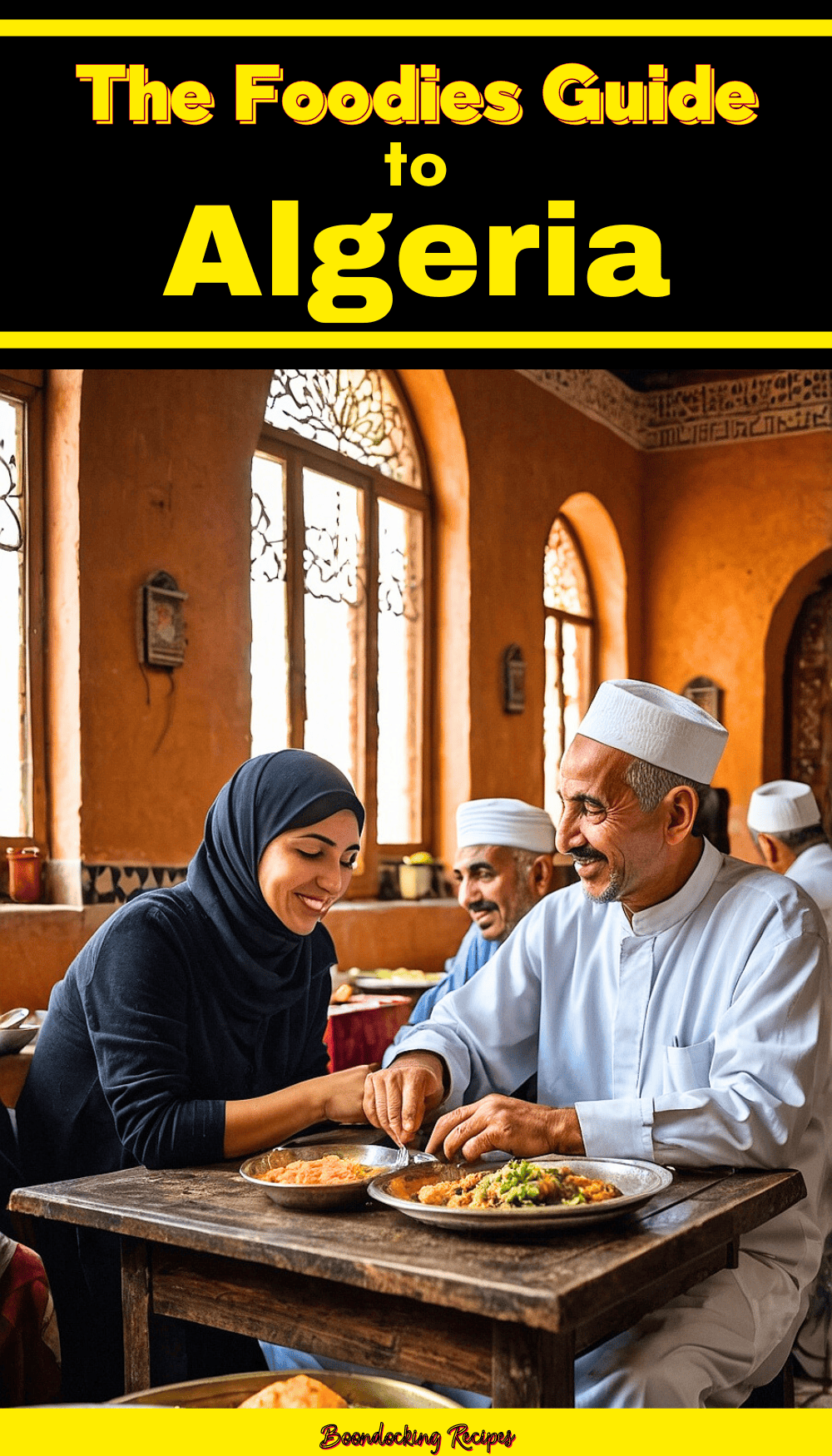
Essential Ingredients in Algerian Cooking
To truly appreciate Algerian cuisine, it’s vital to understand the vital ingredients that characterize its vibrant flavors and hearty textures. These ingredients not only provide the backbone for traditional dishes but also reflect the rich cultural tapestry of Algeria. From spices that tantalize your taste buds to fresh, local produce that speaks of the landscape, each component plays a unique role in creating the beloved dishes of this North African country.
Spices That Bring Flavor
With a culinary heritage influenced by Berber, Arab, French, and Mediterranean flavors, Algerian cooking is renowned for its robust use of spices. Some of the most popular spices include cumin, coriander, paprika, and the fiery harissa, a chili paste that adds both depth and heat to a variety of dishes. Incorporating these spices into everyday meals is not only a practice but an art form that has been passed down through generations, bringing warmth and flavor to tables across Algeria.
One of my personal favorites is Ras el Hanout, which literally means “head of the shop.” This complex blend can contain up to 30 different spices, each chosen to enhance the depth of flavor in tagines and stews. Learning how to balance these spices can transform a simple dish into a culinary delight that transports you straight to the heart of Algeria.
Essential Grains and Legumes
While spices are crucial, grains and legumes form the foundation of many Algerian meals. Couscous, made from finely ground durum wheat, is perhaps the most iconic staple, serving as a hearty base for stews, vegetables, and meats. Additionally, chickpeas and lentils are frequently used, providing texture and protein that complement the diverse array of flavors in Algerian cooking.
Another important aspect of Algerian cuisine is the role of legumes and grains in everyday meals. They not only provide sustenance but also contribute to the cultural identity of the region. Imagine a warm plate of couscous topped with succulent lamb, vegetables, and a sprinkle of spices, enveloping you in the comforting embrace of traditional flavors. This is not just about Algerian travel foodies; it’s a celebration of community and heritage, which you can feel with every bite.
Local Produce and Fresh Ingredients
Bring everything together in Algerian cooking is the commitment to using fresh, local ingredients. The fertile soils and diverse climates of Algeria lend themselves to a bounty of fruits, vegetables, and herbs. From juicy tomatoes and sweet peppers to aromatic herbs like parsley and cilantro, these fresh ingredients are at the heart of Algerian dishes, adding brightness and flavor that makes each meal an experience to savor.
Legumes like fava beans and lentils are also plentiful in the markets, often bought fresh and cooked the same day, ensuring that their flavors are at their peak. This emphasis on fresh produce is evident in dishes such as Chakchouka, a spicy tomato and pepper stew, which showcases the flavors of the season while encouraging you to connect with the local landscapes and communities during your culinary journey.
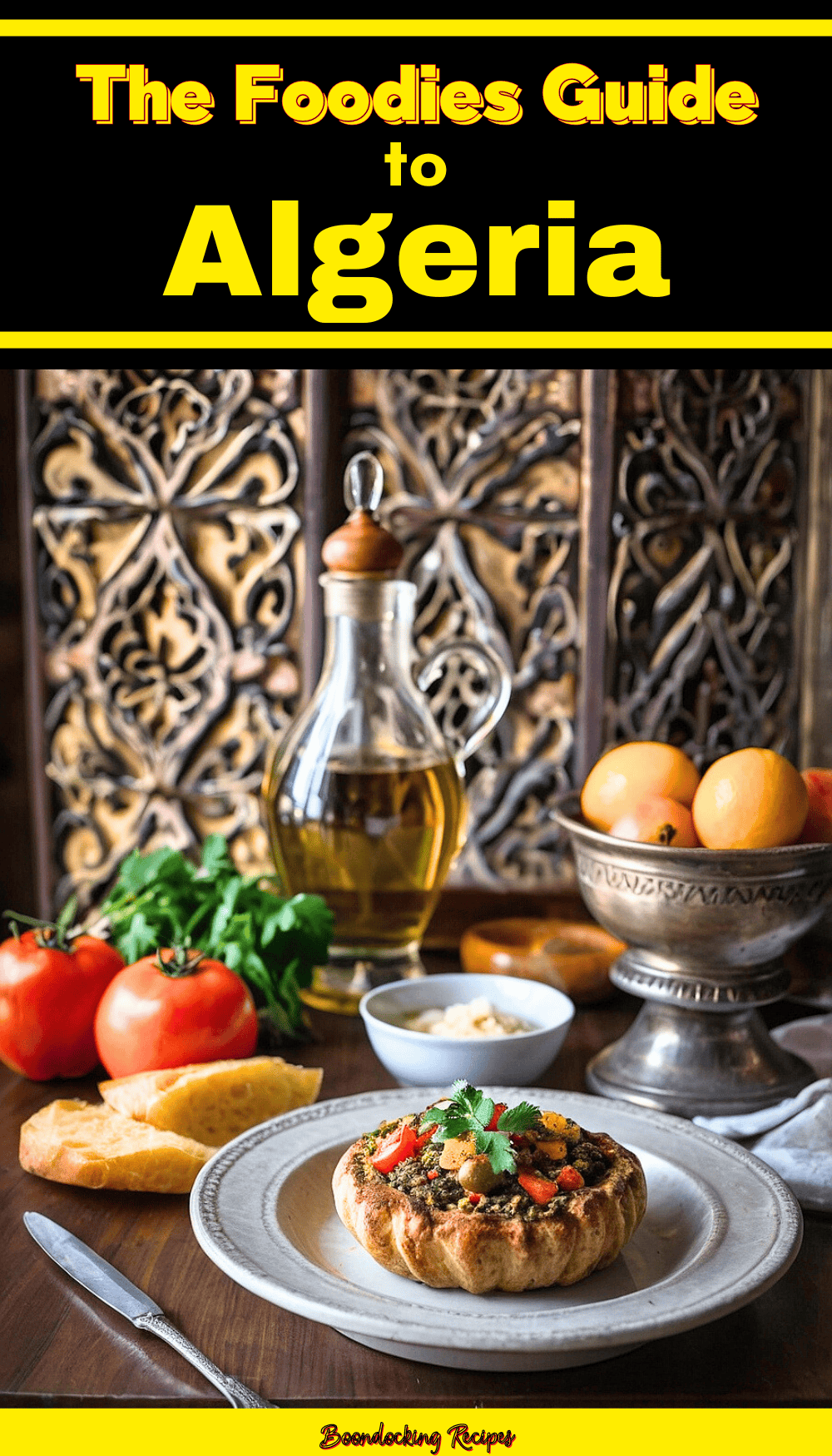
Tips for Enjoying Algerian Food
After immersing myself in the vibrant flavors and rich traditions of Algerian cuisine, I’ve gathered some tips that can enhance your culinary experience. If you’re planning to explore this beautiful country, here are some helpful suggestions:
- Embrace local dining customs and etiquette.
- Be adventurous with your palate; try dishes you’ve never had before.
- Look for small, family-run restaurants for an authentic experience.
- Engage with locals to discover hidden gems in the food scene.
- Learn a few Arabic or Berber phrases to enhance your dining interactions.
Assume that these tips will not only make your Algerian travel foodie exploration easier but also more enjoyable, connecting you with the heart of Algerian culture through its culinary delights.
Best Times to Visit for Food Festivals
Clearly, timing your visit to coincide with food festivals can significantly elevate your culinary journey in Algeria. The country hosts several vibrant food festivals throughout the year, celebrating its rich cultural heritage and diverse culinary traditions. Events such as the Festival of Traditional Cuisine in Algiers typically occur in the spring, while the Souk Festival in Tlemcen offers another fantastic opportunity to experience authentic Algerian flavors in the fall.
These festivals not only showcase local dishes but also feature cooking demonstrations, allowing you to learn about the preparation and presentation of traditional Algerian travel foodie everyone loves. This is an ideal time to engage with local chefs, sampling dishes and gathering recipes to try at home.
Must-try Restaurants and Local Eateries
For those seeking the best local flavors, there are numerous restaurants and eateries that shouldn’t be missed on your culinary expedition. From bustling street stalls to family-run restaurants, each offers a unique taste of Algeria’s culinary spectrum. I recommend visiting places like Le Relais des Arts in Algiers, where you can enjoy traditional dishes in a charming setting, or checking out local eateries in the medinas of Oran and Constantina for an authentic food experience.
Food in Algeria is often about sharing and community, so don’t hesitate to order a variety of dishes to sample with friends or loved ones. Most restaurants embrace the concept of communal dining, allowing you to experience a plethora of flavors in one meal.
How to Navigate a Traditional Meal
Even when dining in a traditional Algerian setting, you may find that the experience is as rewarding as the dishes themselves. Meals typically start with a variety of appetizers known as ‘mezzes,’ which you can share among your companions. Afterward, the main course often features dishes like couscous or tajine, which are central to Algerian cuisine. It’s courteous to wait for the host to begin the meal, often accompanied by music and storytelling, setting a warm and inviting atmosphere.
As you partake in the meal, keep in mind that dining in Algeria is a sensory experience. The vibrant colors and enticing aromas of the dishes can truly enhance your enjoyment. Make sure to use your right hand when eating, as tradition dictates, and feel free to ask questions about the dishes and their origins!
It’s a fantastic way to not only taste but also understand the cultural significance behind each traditional meal. By knowing a bit about the customs, you can deepen your appreciation of the food and the people who prepare it.
Exploring Algerian Food Markets
After immersing myself in the rich flavors and traditions of Algerian cuisine, I found the local markets to be the heartbeat of the culinary scene. They are vibrant spaces filled with activity, where the air is thick with the scent of spices, fresh produce, and baked goods. I loved wandering between stalls, admiring the colorful displays of fruits, vegetables, and artisan products. Each market has a unique character, with vendors enthusiastically sharing stories about their goods and culinary practices, making every visit a delightful experience for the senses.
What to Expect at Local Markets
Little did I know that exploring Algerian food markets would offer me a glimpse into the daily life of locals. The hustle and bustle can be overwhelming at first, but it’s part of the charm. As I strolled through the narrow pathways, I noticed families shopping together, laughter filling the air, and children helping their parents select the freshest ingredients. It’s not just about the Algerian travel foodie experience; it’s a community gathering where people exchange news and support local businesses.
Popular Food Markets to Visit
Any visit to Algeria would be incomplete without exploring its numerous food markets, each with its charm and offerings. One of my favorites is the bustling Souk El Had, located in the heart of Algiers, where you can find everything from olives to traditional spices. The market is a sensory overload, but it’s precisely this chaos that makes it an unforgettable experience. I also enjoyed my time at the market in Oran, known for its fresh seafood and vibrant atmosphere. The friendly vendors are always eager to help you find the perfect ingredients for your culinary adventures.
Markets like Souk El Had and the Oran market represent the cultural richness of Algeria, where you can connect with locals and experience the true essence of the Algerian travel foodie experience. It’s fascinating to see how each marketplace reflects the local culture, with unique foods and culinary practices that can’t be found anywhere else.
Tips for Bargaining and Buying
Exploring the markets also involves some skill in bargaining, which is a significant part of the shopping experience in Algeria. I found that approaching vendors with a friendly attitude helps set the tone. It’s a dance, where a little playful negotiation can go a long way. Remember to be respectful, as this is a cherished tradition. Here are some tips I gathered along the way:
- Start by greeting the vendor warmly, as this builds rapport.
- Show interest in the products, asking questions about them to engage in conversation.
- Be prepared to walk away; often, this will prompt the seller to reconsider their price.
- Know the average prices for items you’re interested in to increase your bargaining power.
Thou should always remember to keep the experience light-hearted and enjoyable, ensuring that you both leave with a smile.
Exploring these markets has truly been an eye-opening experience for me, as they reflect the heart and soul of Algerian culture. To make the most of your visit, it’s necessary to interact and build a rapport with the sellers. Here are some additional pointers to keep in mind:
- Practice your Arabic or French; even a few phrases can go a long way.
- Don’t hesitate to ask for samples, as many vendors are happy to share.
- Be patient and give yourself enough time to wander and explore.
Thou will undoubtedly enrich your Algerian foodie travels by embracing the spirit of its markets.
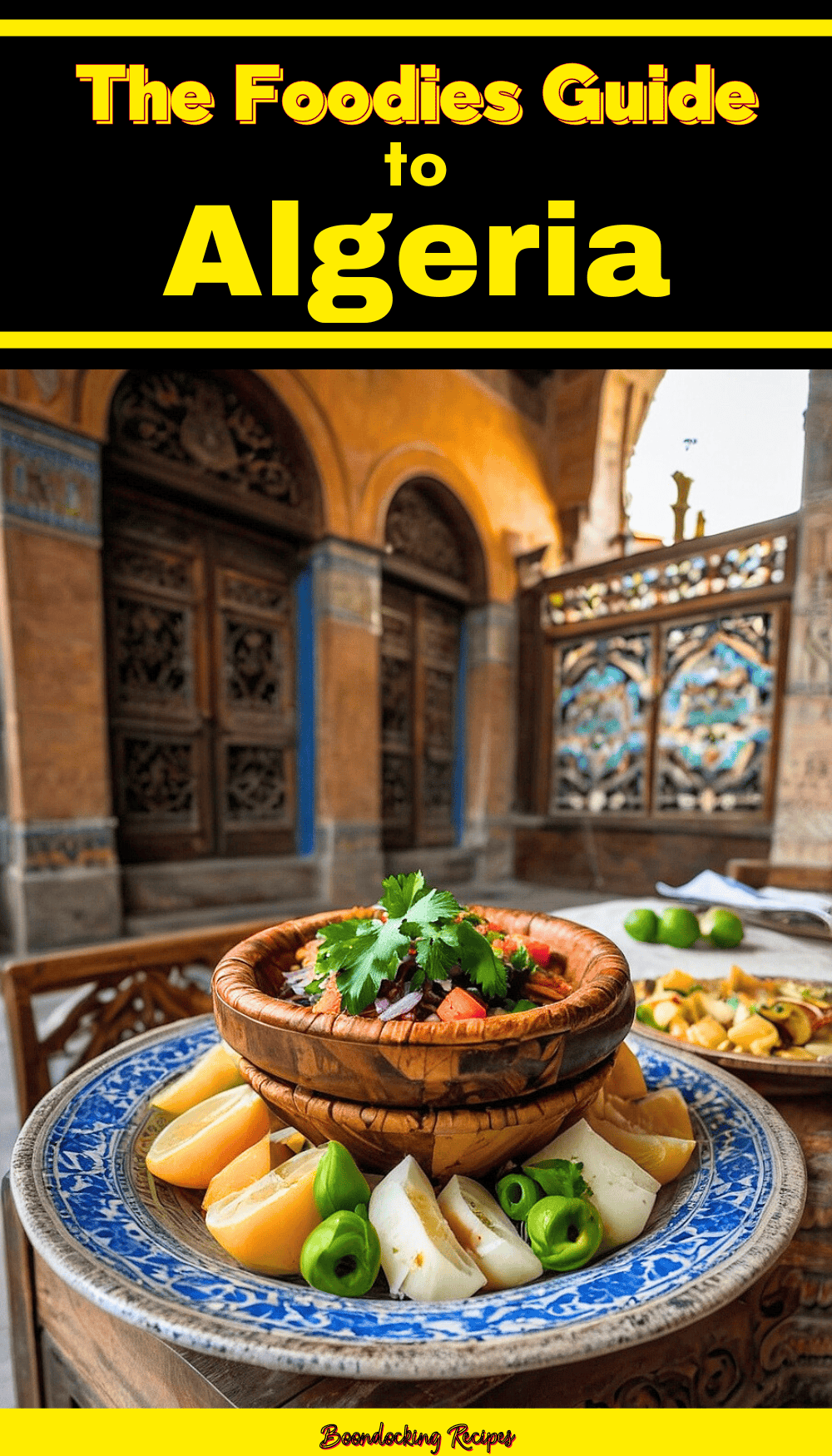
Algerian Food Culture
Mealtime Customs and Traditions
Keep in mind that dining in Algeria is not just about feeding the body; it’s an experience that reflects the rich cultural heritage of the nation. Little rituals and traditions surround mealtime, making it a significant event for families and friends. Meals typically begin with a hearty greeting, and it’s customary to wash hands before eating, often performed in a symbolic manner linked to hospitality and cleanliness. I find it fascinating how meals are served in a communal style, with food presented on large platters from which everyone helps themselves. This approach fosters a sense of togetherness and camaraderie that is truly heartwarming.
Social Aspects of Dining
One of the most enchanting aspects of Algerian dining culture is the emphasis on community and shared experiences. Meals are a time for family bonding and socialization, often extending beyond immediate relatives to include extended family and friends. I love how these gatherings are filled with laughter, stories, and, of course, delicious food. Dining isn’t just sustenance; it’s a means of connecting with loved ones and expressing hospitality. Even in casual settings, offering a guest something to eat or drink is seen as a sign of respect and warmth.
Culture plays a pivotal role in shaping the social fabric of dining in Algeria. In various regions, meals can last for hours, highlighting the importance of the Algerian travel foodie in cultivating relationships.
Celebrations Centered Around Food
You can’t talk about Algerian travel foodie culture without mentioning the delightful celebrations centered around food. Festivities in Algeria are deeply intertwined with culinary traditions, where specific dishes are prepared to honor occasions like weddings, religious holidays, and family reunions. I absolutely love how special these meals can be—it’s not just about the food, but the entire experience of preparing, sharing, and enjoying it with others. For instance, during Eid, it’s traditional to prepare sweet dishes like baklava or special tagines that showcase the splendor of the holiday.
Food becomes a centerpiece of the celebrations, often symbolizing abundance and gratitude. The atmosphere is infused with joy, and there’s a palpable sense of unity among family members and friends coming together to enjoy these homemade delights.
Mealtime in Algeria is not merely about sustenance—it’s an experience brimming with customs, social interactions, and celebrations that bring people together. Whether it’s a quiet evening meal or a grand feast, the culture of dining in Algeria encapsulates the heart of its people and their traditions.

Cooking Classes and Experiences
Many Algerian foodie travel guide users find that taking a cooking class during their stay in Algeria is one of the best ways to immerse themselves in the vibrant culture. With the rich tapestry of flavors and traditions that Algerian cuisine offers, there’s so much to learn and experience firsthand. From the bustling markets to the delightful aroma wafting from local kitchens, participating in a cooking class brings you closer to the heart of Algerian food and its history.
Finding the Right Cooking Class
Little did I know that choosing the perfect cooking class could be as exciting as the cooking itself. There are numerous options available—from private one-on-one lessons with a local chef to group classes in charming settings. It’s important to consider what you’re looking to learn. Are you more interested in mastering traditional dishes or exploring fusion recipes? Researching online reviews and social media can also give you insights into different experiences and help you make the best choice for your culinary adventure.
What You’ll Learn in a Cooking Class
Cooking classes in Algeria offer a wealth of knowledge that goes beyond just following a recipe. You’ll explore the history and significance of ingredients commonly used in Algerian cuisine, such as spices like cumin and coriander. Additionally, you’ll learn cooking techniques that have been passed down through generations, allowing you to recreate authentic dishes back home.
You’ll also have the chance to prepare iconic dishes like couscous, tagines, and brik, which is a type of pastry. As you chop, stir, and knead, it’s not just about cooking; it’s about storytelling. The interactions with your instructor and fellow participants often lead to sharing personal anecdotes and traditions that enrich your understanding of each dish.
Personal Experiences and Takeaways
Right from the moment you enter the kitchen, a cooking class becomes a delightful mix of education, engagement, and enjoyment. My first experience involved making a traditional dish called “Chakhchoukha,” which is a flavorful mix of shredded flatbread and meat. I loved how the chef emphasized the communal aspect of cooking, highlighting how meals are often a family affair in Algeria. This personal touch made the class feel warm and inviting.
Experiences like these go beyond the kitchen; they stay with you long after you’ve left the country. I remember making friends with fellow Algerian foodie travel readers, exchanging contact information as we promised to recreate the dishes we learned. These cooking classes nurture an appreciation for the ingredients and the stories behind Algerian cuisine, making each meal a reminder of that wonderful time spent learning and sharing.
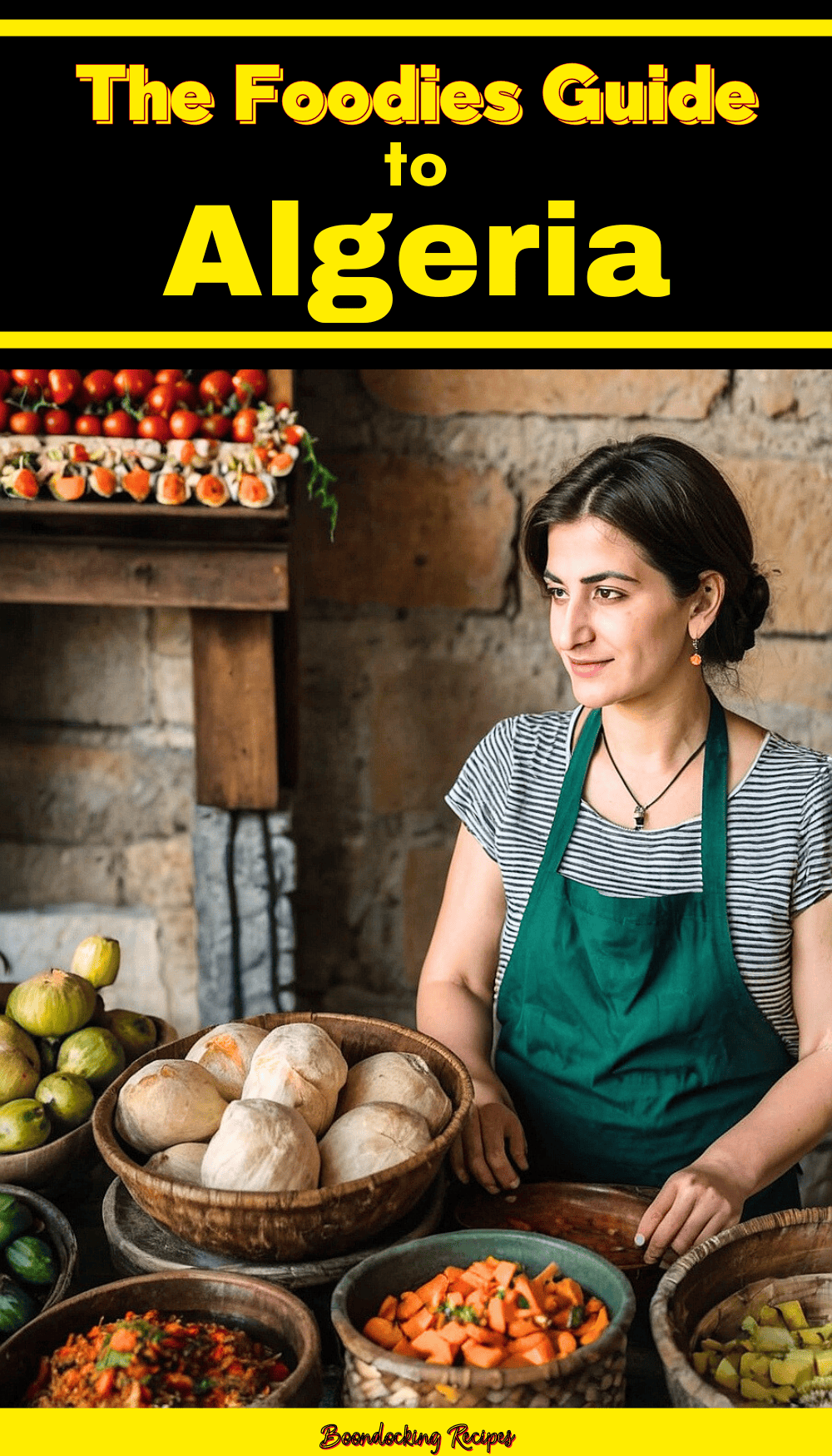
Food and Travel Etiquette
Do’s and Don’ts at the Dining Table
Food etiquette in Algeria adds a unique twist to your dining experience. When dining with locals, I always make sure to use my right hand to eat, as the left hand is considered unclean. It’s also important to wait for the host to start the meal before diving in. If you’re served in a communal dish, use a spoon or your right hand to eat, and avoid reaching across the table for food, as this can be seen as impolite. Also, showing appreciation for the meal is crucial; compliments to the chef can go a long way in showing respect for their culinary skills.
On the flip side, one of the things I learned quickly is that you should avoid questioning the food or the way it’s prepared. Instead, embrace the flavors and let the people around you share their stories and traditions. Remember to keep your voice down and maintain a relaxed demeanor, as meals can often be intimate affairs filled with lively conversation.
Cultural Sensitivities to Remember
While using this Algerian foodie travel guide, it’s crucial to be mindful of certain cultural sensitivities that can enhance your overall experience. Respect for traditions is deeply ingrained in the social fabric here. For instance, during Ramadan, it’s important to refrain from eating or drinking in public during the daylight hours out of respect for those who are fasting. Observing local customs will not only endear you to the locals but will also provide a more enriching experience while you indulge in the country’s culinary delights.
Sensitivities also extend to dress codes in rural areas or religious sites, where modest clothing is expected. As you navigate through the vibrant markets or enjoy street food, a simple way to show respect is to adopt a conservative style. By doing this, you’ll not only blend in but will also be showing respect for the local culture.
Greeting and Thanking Hosts
An crucial part of Algerian dining etiquette is how you greet and thank your hosts. When invited into someone’s home, I make it a point to greet everyone, not just the host. A warm “Salam Alaykum” (peace be upon you) goes a long way in establishing rapport. After the meal, expressing heartfelt thanks is crucial. I often say “Choukran” (thank you) with a genuine smile, which is met with warmth and appreciation. It’s a small gesture, but it helps solidify bonds and shows respect for their hospitality.
It’s fascinating how food and social interaction intertwine in Algerian culture. It’s common for hosts to offer you a second serving, and while it may be tempting to accept, it’s good manners to decline politely after the first serving to avoid putting them in a position of having to offer more. Each meal becomes a delightful exchange of gratitude and respect, reinforcing the deep social connections that Algerians foster around their tables.
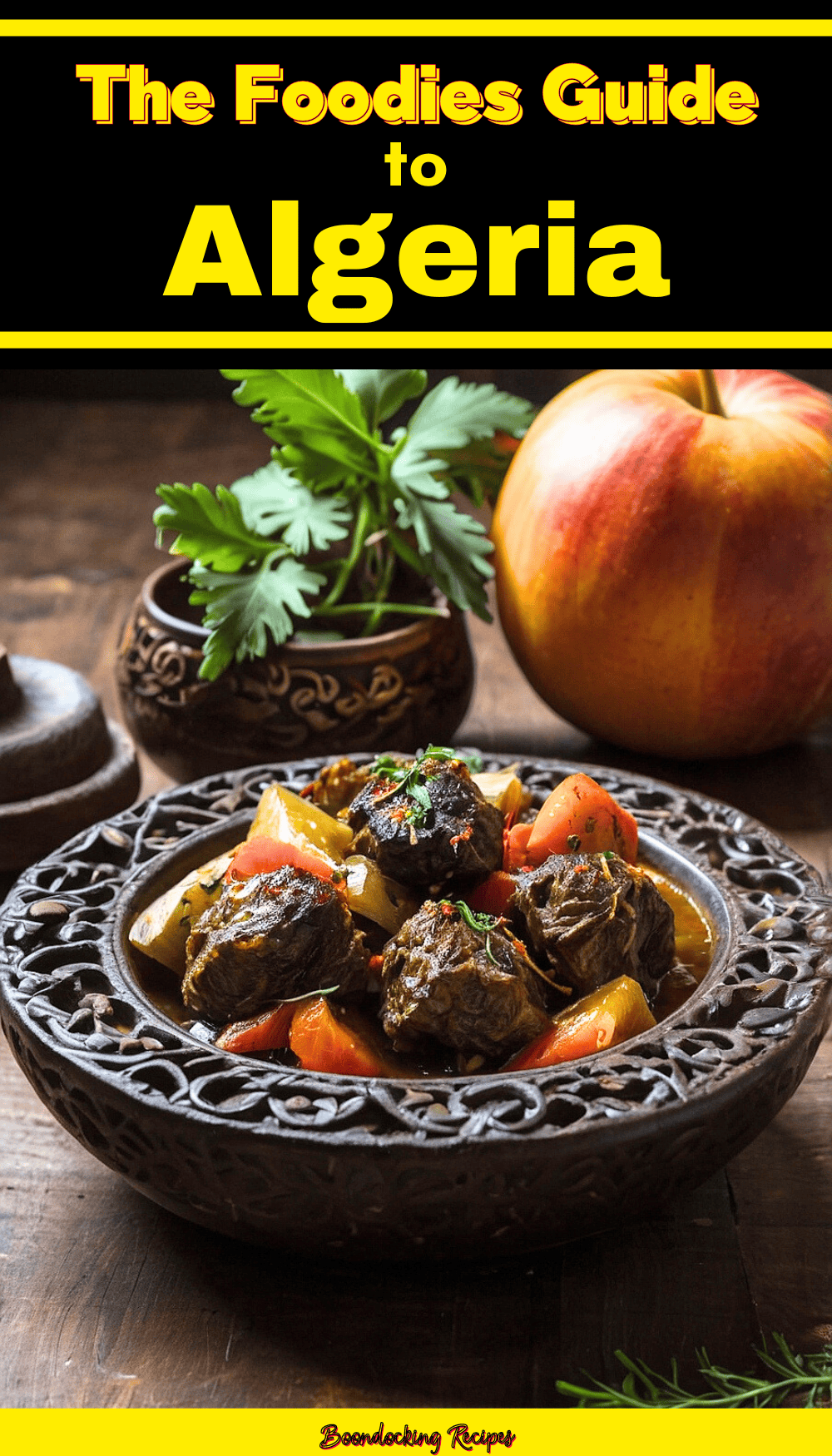
Navigating Algerian Food Labels
Once again, I find myself drawn to the vibrant world of Algerian cuisine, a journey that not only tantalizes the taste buds but also introduces me to a rich tapestry of culture and history. In this culinary adventure, understanding food labels becomes crucial, as they often reflect the country’s diverse influences and traditions. Whether you’re perusing menus at local eateries or exploring food markets, knowing how to navigate these labels can enhance your dining experience in Algeria.
Understanding Menu Terms
While exploring Algerian menus, I quickly realized that some terms can be a little challenging to decipher. Dishes might come with names that seem unfamiliar, such as “couscous” or “tajine,” which can often lead to delightful surprises – and sometimes a bit of confusion! It’s helpful to familiarize yourself with these common terms before you arrive, so you can confidently order your meals and engage with local culinary traditions.
In Algeria, many menu items highlight the country’s blend of Arab, Berber, and Mediterranean influences. For example, “mechoui” refers to whole roasted lamb, a popular dish you’ll likely see on festive occasions. By understanding these terms, you can appreciate the significance behind the dishes and the skill involved in preparing them.
Recognizing Local Dishes
Clearly, getting to know some of the local dishes can greatly enhance your dining experience. I often found that each region in Algeria has its own specialty, showcasing a unique twist on traditional recipes. For instance, in the coastal areas, you’ll find seafood-based dishes that reflect the proximity to the Mediterranean Sea, while inland you can expect heartier, spice-laden meals that embody the Bas Sahara’s arid flavors.
Terms like “chakhchoukha,” a spicy dish featuring flatbread mixed with meat and vegetables, became easy to recognize and even easier to crave! The beauty of Algerian cuisine lies in its variety, and knowing what to look for can lead you to the best recommendations, allowing you to explore the depths of this fascinating culinary landscape.
Decoding Ingredients
Some ingredients in Algerian cooking might be new to you, yet they create familiar flavors that will make you feel right at home. Staples such as “harissa,” a spicy chili paste, and “semolina,” used for couscous, are often highlighted in various dishes. Understanding these key ingredients not only aids in navigating menus but also enriches your appreciation for the culinary techniques involved.
As you examine deeper, you may encounter ingredients like “za’atar,” an aromatic herb blend, or local legumes that add depth to soups and stews. To truly appreciate Algerian cuisine, it helps to know which components are foundational to the dishes you’re enjoying. This knowledge allows you to identify flavors and ingredients that resonate with your palate and perhaps inspire your own cooking at home!
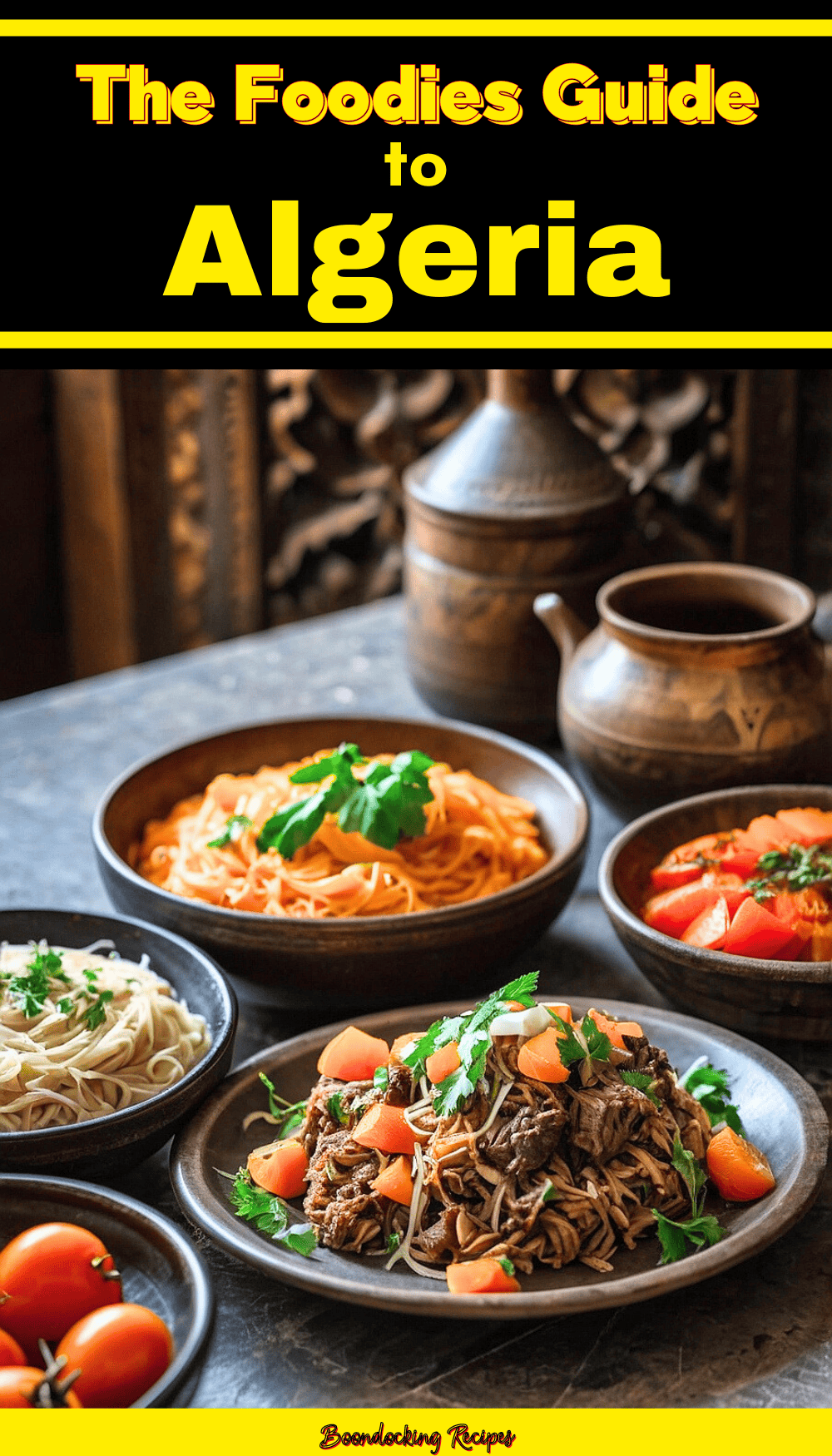
Pros and Cons of Algerian Foodie Travel
Despite the allure of stepping into Algeria’s rich culinary scene, initiateing a Algerian foodie travel guide adventure comes with its own set of pros and cons. It’s imperative to weigh these carefully to enrich your experience.
Pros and Cons of Algerian Foodie Travel
| Pros | Cons |
|---|---|
| Diverse culinary heritage | Language barriers |
| Fresh, local ingredients | Limited vegetarian options |
| Unique flavors and spices | Varying hygiene standards |
| Welcoming locals | Infrastructure challenges |
| Strong street food culture | Occasional food unavailability |
| Rich cultural experiences | Long wait times at popular eateries |
| Cooking classes available | Health concerns with certain foods |
Advantages of Traveling for Food
Little did I know while planning my trip to Algeria that indulging in traditional dishes would not only satisfy my taste buds but also immerse me in the country’s vibrant culture. Each meal proved to be a delightful journey through history, bringing me closer to the rich tapestry of traditions that the Algerian people uphold. While sampling local delicacies, I felt a connection to the land and its people that broadened my understanding of their way of life.
Moreover, I discovered that the food scene in Algeria offers something for everyone. Whether you are a seasoned foodie or a casual diner, the abundance of unique flavors and local ingredients will pique your interest. Experiencing the warm hospitality of the locals, who are often eager to share their culinary secrets, added a personal touch to my gourmet exploration.
Potential Challenges to Consider
One thing I had to consider was that, while following the Algerian foodie travel guide can be a thrilling experience, it does come with its challenges. From navigating unfamiliar menus to dealing with occasional language barriers, these factors can sometimes complicate the enjoyment of dining. I found myself needing to adapt quickly to make the most of my culinary expedition.
With various regions showcasing distinct culinary styles, it is crucial to approach each experience with an open mind while preparing for unexpected hurdles along the way. Exploring these differences can be incredibly rewarding, but it also requires patience and flexibility.
Tips to Overcome Obstacles
As a Algerian foodie traveler, I discovered several strategies to navigate the challenges that come with Algerian foodie travel guide. Here are some tips that might help you along the way:
- Learn a few key phrases in Arabic or French to help with communication.
- Research local dishes and ingredients to familiarize yourself before you arrive.
- Join food tours to benefit from expert guidance.
- Be open to trying new things, even if they seem unfamiliar.
Recognizing these strategies not only helped me overcome culinary obstacles, but also enriched my overall experience during my time there.
Challenges continue to arise as I investigate deeper into Algeria’s food culture. Although they may seem overwhelming at first, having a positive attitude can go a long way in discovering hidden gems. Here are a few more tips to make your Algerian foodie travel journey smoother:
- Be mindful of food safety; avoid street food that doesn’t look fresh.
- Carry a small bag for snacks as some restaurants may have limited options.
- Engage with locals; they often know the best places to eat.
- Stay hydrated and take breaks to enjoy the surroundings.
Recognizing these potential challenges and preparing for them will allow you to immerse yourself even deeper into Algeria’s culinary landscape, creating memories that last a lifetime.
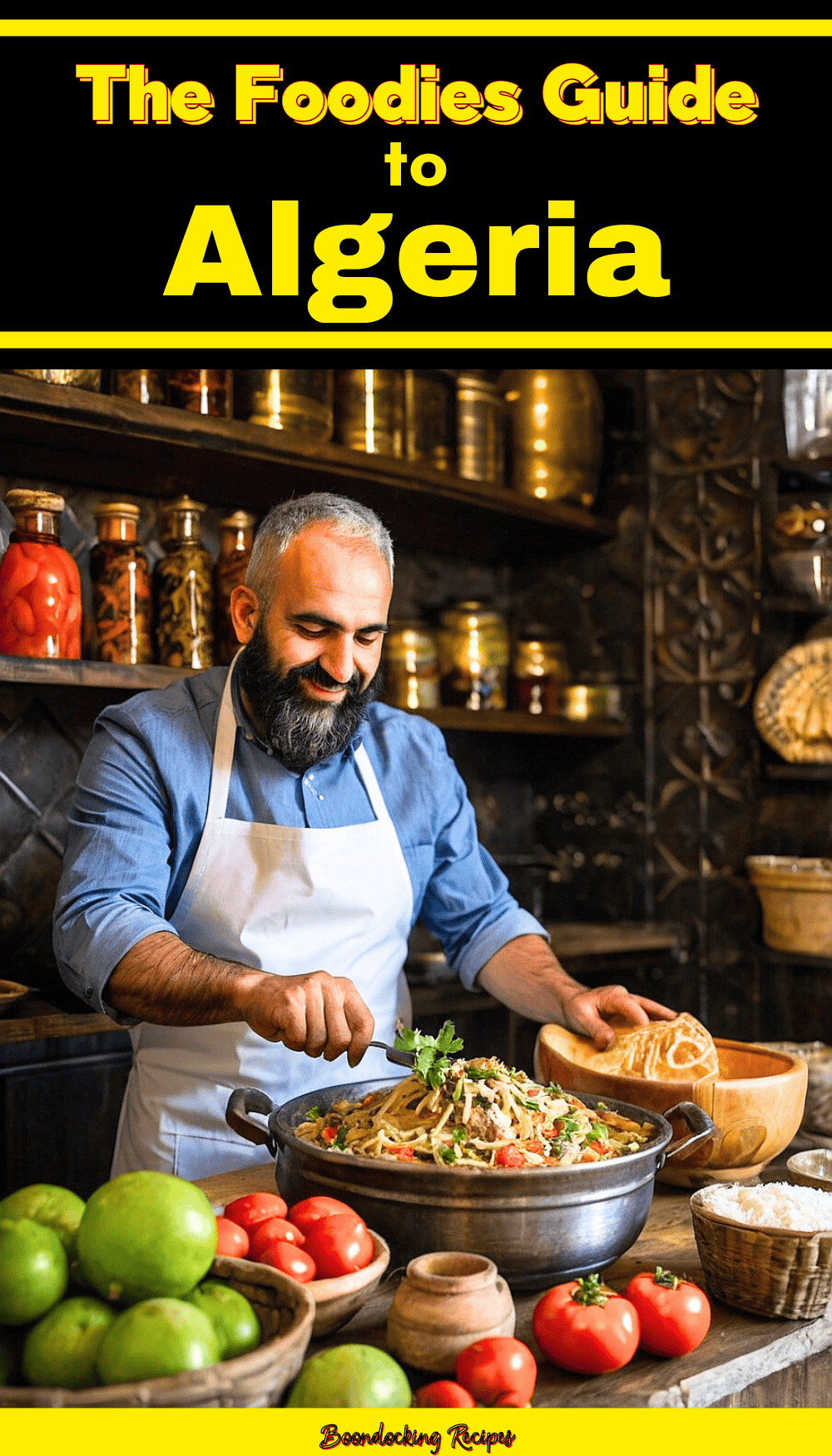
Step-by-Step Guide to Planning Your Foodie Trip
For anyone who loves food, planning a Algerian foodie travel guide adventure can be exhilarating! Whether you’re a seasoned globetrotter or a first-timer, having a well-thought-out plan can help you savor the most unique culinary experiences. Here’s a guide to help you navigate through this exciting journey!
| Steps | Description |
| 1. Research culinary hotspots | Discover must-visit locations renowned for their local dishes. |
| 2. Create a food-centric itinerary | Plan your journey to include distinct food experiences. |
| 3. Booking food tours and experiences | Reserve guided tours to enhance your culinary adventure. |
Researching Culinary Hotspots
On launching on my culinary adventure, I quickly realized that knowing where to go is just as important as knowing what to eat. Algeria boasts a plethora of cities that each bring their own unique flavors and dishes to the table. From Algiers with its bustling markets to Oran with its seafood delights, I began exploring online travel guides, food blogs, and even social media to locate hidden gems worth visiting during my trip.
On top of that, reaching out to locals through forums or sites like Couchsurfing can provide you with amazing insight into the best local eateries that aren’t always spotlighted in Algerian foodie travel books. Don’t hesitate to make a wishlist of restaurants, street food vendors, and themed food markets that capture your interest!
Creating a Food-centric Itinerary
With so many exciting options available, crafting an itinerary can be a delightful task! I started by identifying the must-try dishes from each region while factoring in the markets and festivals that would be happening during my visit. Balancing my schedule between sightseeing and culinary adventures is key; it allows you to appreciate the rich history while savoring local flavors.
With each meal planned, I felt a thrill in anticipating the next culinary delight. Be flexible, too! You might stumble upon spontaneous events or pop-up food stalls that catch your eye. Your itinerary should guide you, but it should also leave room for discoveries that come along the way!
Your itinerary needs not only focus on the food but also incorporate travel time between locations. I recommend using mapping tools to estimate distances and create a flow that works without overwhelming you. This conscious planning can enhance your experience, making your food tour enjoyable and efficient.
Booking Food Tours and Experiences
Itinerary planning wouldn’t be complete without booking food tours and experiences! As I dove into the local culinary scene, I found myself longing for guided tours that can help uncover the finer details of Algerian cuisine. With so many options available, I sifted through reviews for the best tour providers and settled on experiences that resonated with my interests—like a cooking class or a guided street food tour.
Itinerary preparation also opened doors to cooking classes and market tours where I not only tasted delightful dishes but also learned to prepare some myself. Engaging with local chefs can give you insights into their culinary traditions and techniques, adding a layer of depth to your experience.
A well-executed food tour not only tantalizes your taste buds but also enriches your understanding of the culture through food. I savor those moments as they forge bonds between people through shared love for culinary delights.
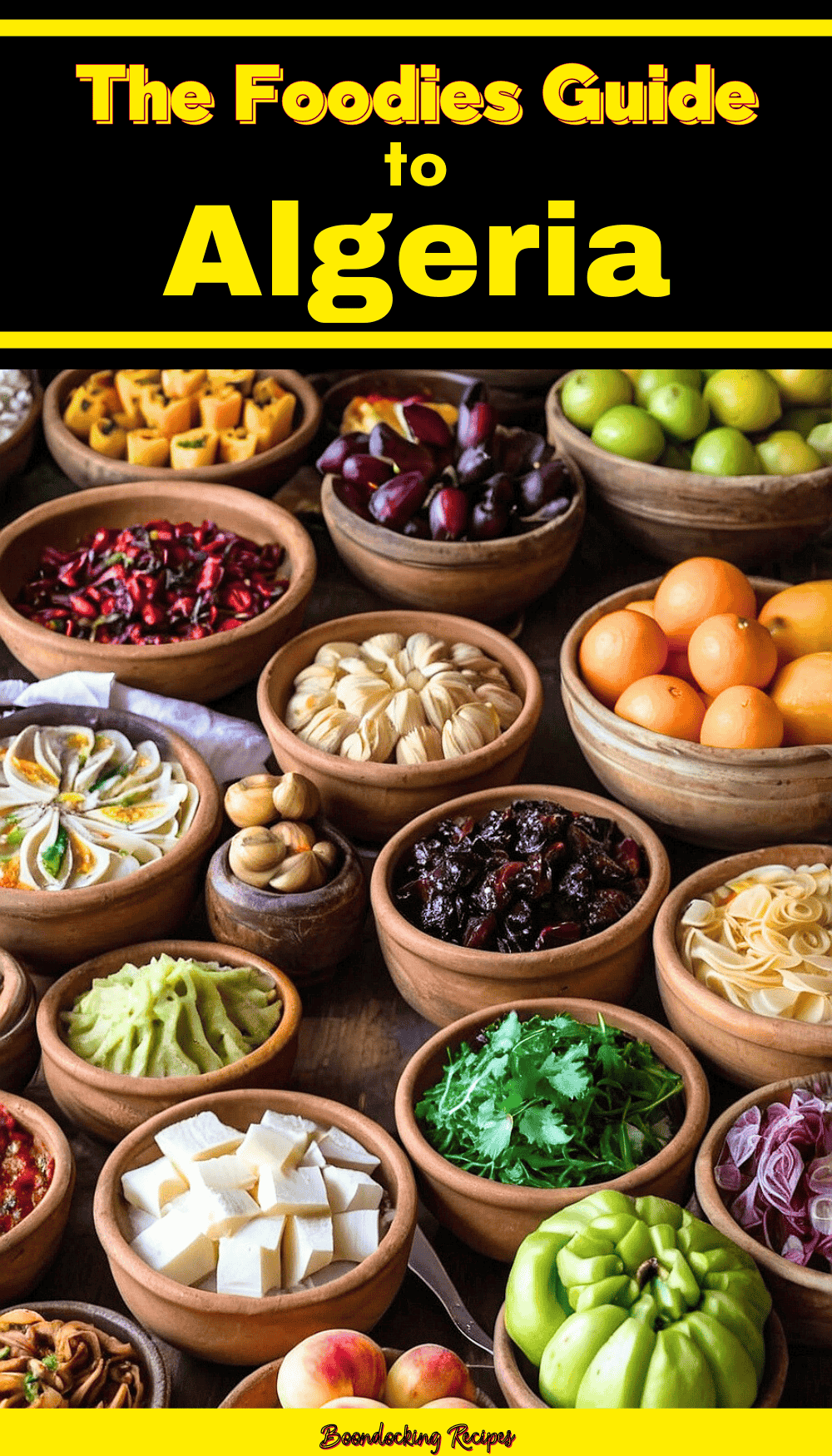
The Role of Algerian Beverages
Unlike many other cuisines around the world, Algerian beverages play a pivotal role in both daily life and social gatherings. They aren’t just drinks; they’re integral to the dining experience and a way to connect with the local culture. When I ventured into Algerian cuisine, I quickly learned that the drinks offer their own unique stories, traditions, and flavors that deserve a spotlight.
Traditional Drinks You Must Try
Now, let’s probe some traditional drinks that you absolutely must try during your visit! One of the most iconic beverages in Algeria is mint tea, often referred to as “Berber whiskey.” This sweet, fragrant tea is brewed with green tea, fresh mint leaves, and a generous amount of sugar, embodying hospitality at its finest. Another delightful option is, of course, coffee, particularly strong Turkish coffee that will give you a quick pick-me-up while immersing yourself in the lively café culture.
Don’t skip over the wide variety of fresh fruit juices available; they’re a staple in the hot climate and vary from pomegranate to orange. If you’re feeling adventurous, try a beverage called “lben,” a fermented milk drink that’s creamy and tangy, sure to surprise your palate. Each drink tells a story and showcases the flavors of the region, making it impossible to resist sampling these delicious options!
Sweet and Savory Beverage Pairings
Beverages in Algeria are often paired with specific dishes, creating a harmonious dining experience that enhances the flavors of both food and drink. For instance, sweet mint tea complements savory dishes like tagines beautifully, providing a refreshing counterbalance to rich flavors. When enjoying a spiced meat dish, a glass of fresh orange juice can lift the palate, adding a vibrant touch to every bite!
With such a diverse array of culinary delights, I found that these pairings made each meal a memorable experience. It’s fun to experiment; you might discover that your favorite drink pairs perfectly with an unexpected dish, leading to culinary surprises that delight the senses.
Alcohol and Cultural Norms
You might notice that drinking alcohol in Algeria is not as common as in some other cultures, largely due to the country’s predominantly Muslim population. However, there are regions and occasions where you might encounter wine or beer, particularly in tourist areas or during special celebrations. It’s crucial to respect local customs and understand that many people may choose to abstain from alcohol, and opting for traditional drinks can often be a more suitable choice.
Plus, while alcoholic beverages might not be the center of social gatherings, the passion and pride in crafting non-alcoholic drinks like mint tea and fresh juices are ubiquitous. When you sit down for a meal, you’ll notice that each beverage is just as celebrated and embraced as wine would be in other cultures, showcasing the rich culinary heritage of Algeria.
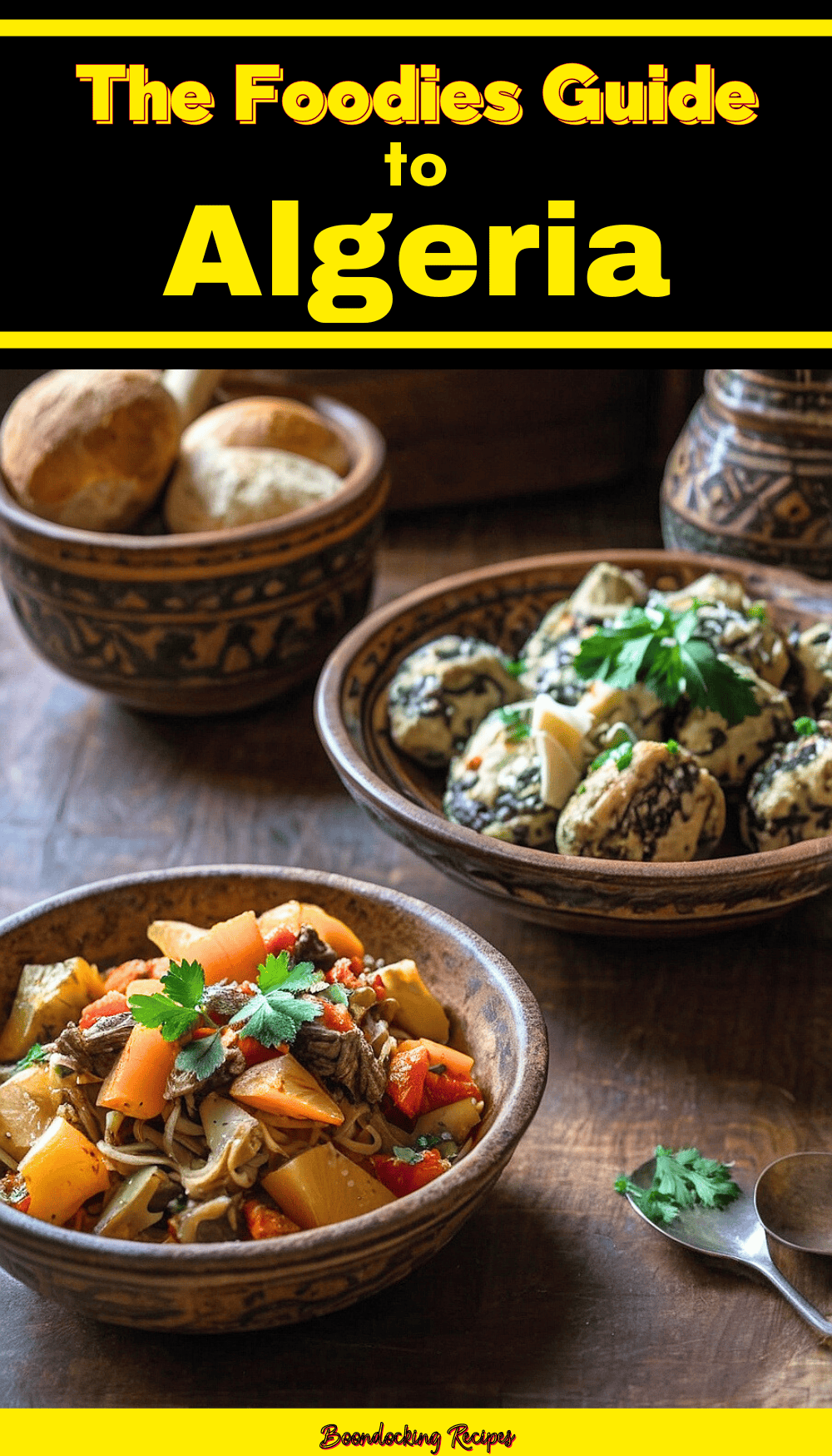
Must-Visit Algerian Cities for Foodies
Now that we’ve explored into the delightful world of Algerian cuisine, let’s explore some cities that are a must-visit for the Algerian foodie travel guide traveler. Each city boasts its unique flavors and culinary experiences, offering a taste of Algeria’s diverse food culture. I personally can’t wait to take you through these culinary hotspots!
Algiers: The Capital of Flavor
For anyone seeking a vibrant gastronomic scene, Algiers is undoubtedly the place to be. As the capital city, it is not just a hub for politics and history; it’s a melting pot of flavors waiting to be explored. From traditional dishes like couscous and tagines served in charming eateries to street food stalls offering fresh seafood and pastries, Algiers has something to tantalize every palate. I found myself lost in the narrow streets of the Kasbah, where the aromatic spices emanating from the local kitchens drew me closer.
For me, the best experience is indulging in a traditional Algerian meal while gazing at the Mediterranean Sea. Don’t miss trying out “mechoui,” which is lamb roasted in an underground pit, and “harira,” a hearty soup often enjoyed during Ramadan. The food here is a blend of history and culture, transporting you to a different era with every bite. You truly feel the love and care put into each dish.
Oran: A Culinary Fusion
For those who appreciate a mix of culinary traditions, Oran is a city you shouldn’t miss. Known for its lively atmosphere and coastal charm, Oran combines Berber, Arabic, and even Spanish influences into its food culture. I can attest that wandering through the bustling markets and colorful streets will leave you spellbound—and hungry! Sample “chesh,” a delightful pastry filled with meat or potatoes, or “cuisine de la mer”—a seafood dish featuring the catch of the day, which is a local favorite.
Oran offers a unique blend of flavors that reflect its history; restaurants here often serve dishes that showcase a cross of both North African and Mediterranean cuisines. The tapas-style small plates are absolutely perfect for sharing and experiencing a variety of tastes. I loved pairing my meals with the local wine as I soaked in the energy around me.
Oran also flourishes during its cultural festivals, when the streets pulsate with life, music, and delectable dishes that remind you just how vibrant Algerian food culture can be.
Constantine: Historical Influences
There’s something enchanting about Constantine that goes beyond its breathtaking cliffs and stunning views; it has a rich culinary history that reflects the influences of its many rulers over the centuries. I found myself enchanted by its fusion of flavors as I explored the city’s food scene. The traditional dishes here often incorporate walnuts and other local ingredients, creating unique flavors that you won’t easily find elsewhere. Dining under the stars while enjoying the famous “mbesses” (a traditional cake) is an experience I think you should add to your Algerian foodie travel list.
Capital of the East, Constantine brings a treasure trove of dishes like the unique “boulfaf” (grilled liver wrapped in fat) and “semoule,” a specialty made from semolina that’s used in various sweet and savory dishes. The rich history you can taste in these meals tells the story of the city itself, making your visit feel like a deliciously edible journey through time.
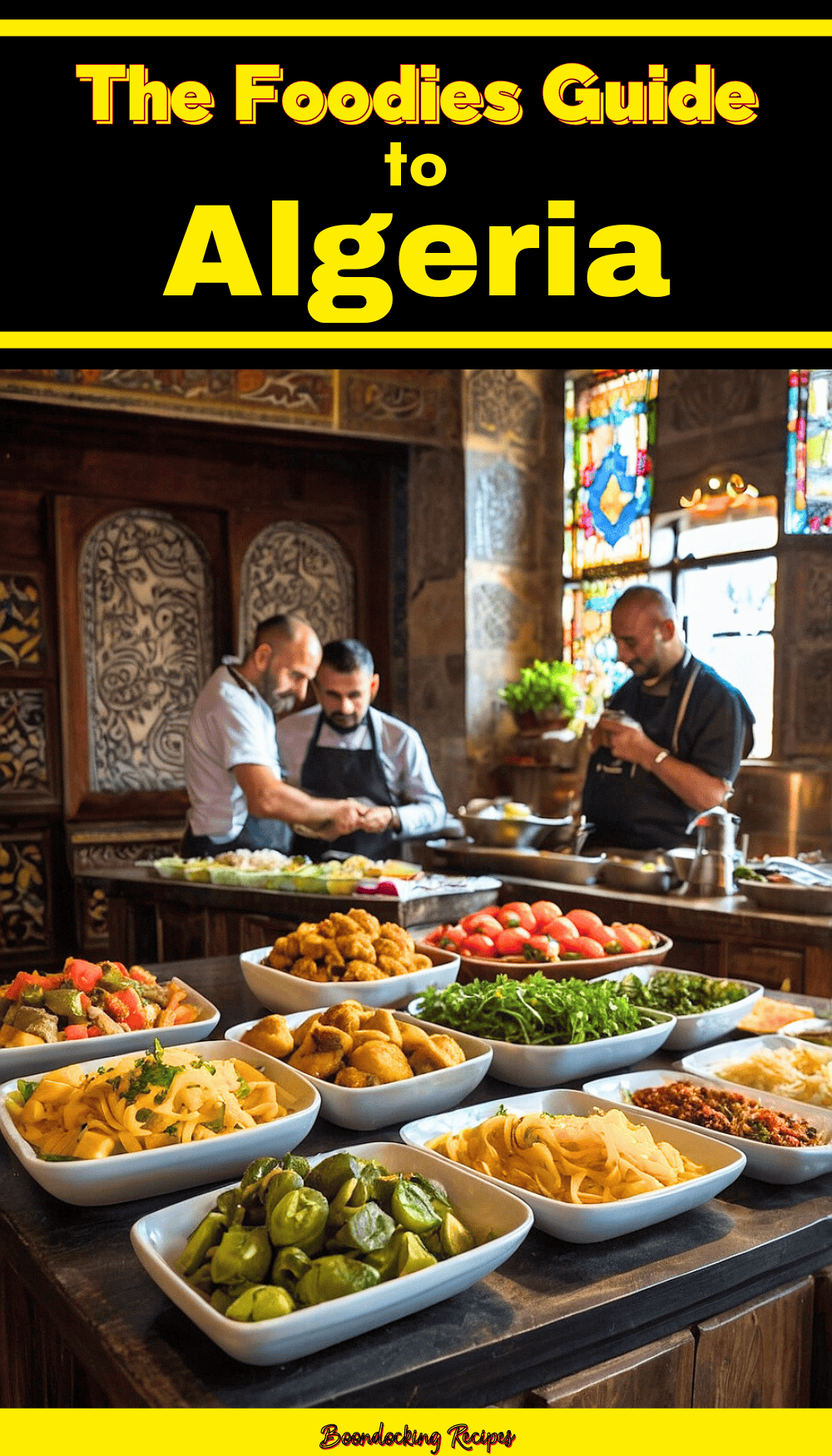
Summing Up Our Algerian Foodie Travel Adventure
With this in mind, I encourage you to commence on your own Algerian foodie travel guide adventure. Exploring its culinary delights will not only tantalize your taste buds but also immerse you in the rich cultural tapestry of the country. I can assure you that trying local dishes will create lasting memories and meaningful connections with the people you meet along the way.
The experience of Algerian food is as much about the flavors as it is about the stories behind each dish. As you savor your meals, think of the generations of cooks who have perfected these recipes and the significance of sharing food in Algerian culture. I hope you find joy in every bite and create unforgettable moments during your culinary journey.
10 FAQs For the Algerian Foodie Travel Guide
Q: What can I expect from an Algerian foodie travel experience?
A: An Algerian foodie travel experience offers a rich blend of flavors, from savory couscous to sweet pastries like makroud. You’ll explore traditional dishes influenced by Berber, Arab, and French culinary traditions.
#Q: Which cities should I visit during my Algerian foodie travel?
A: During your Algerian foodie travel, cities like Algiers, Oran, and Constantine are must-visits. Each city offers unique regional dishes, making your culinary journey diverse and exciting.
Q: What are the must-try dishes on an Algerian foodie travel?
A: On an Algerian foodie travel, be sure to try dishes like couscous, tajine, and harira. These traditional meals are staples in Algerian cuisine and reflect the country’s rich culinary heritage.
Q: Is Algerian street food worth exploring during my Algerian foodie travel?
A: Yes, Algerian street food is a highlight of any Algerian foodie travel. From spicy merguez sausages to sweet baklava, street vendors offer a quick and delicious way to sample local flavors.
Q: How can I navigate dietary restrictions during my Algerian foodie travel?
A: During your Algerian foodie travel, many restaurants are accommodating of dietary restrictions. It’s helpful to learn some basic French or Arabic phrases to communicate your needs effectively.
Q: What are the best times of year for an Algerian foodie travel adventure?
A: The best times for an Algerian foodie travel experience are spring and fall. The weather is pleasant, and you can enjoy seasonal ingredients in traditional dishes like chorba.
Q: Can I find vegetarian options during my Algerian foodie travel?
A: Yes, vegetarian options are available during your Algerian foodie travel. Dishes like chakhchoukha and lentil soup offer flavorful vegetarian choices, though meat is often a central part of Algerian cuisine.
Q: What should I bring back from my Algerian foodie travel as souvenirs?
A: During your Algerian foodie travel, consider bringing back spices like ras el hanout, dates, and traditional sweets like baklava as culinary souvenirs of your trip.
Q: How do I ensure I experience authentic cuisine during my Algerian foodie travel?
A: To experience authentic cuisine during your Algerian foodie travel, eat at local restaurants and markets. Joining a food tour can also provide insider access to traditional dishes.
Q: What cultural customs should I be aware of during my Algerian foodie travel?
A: Respect for cultural customs is important during your Algerian foodie travel. Always wash your hands before a meal, and understand that sharing food is a common practice in Algerian culture.


